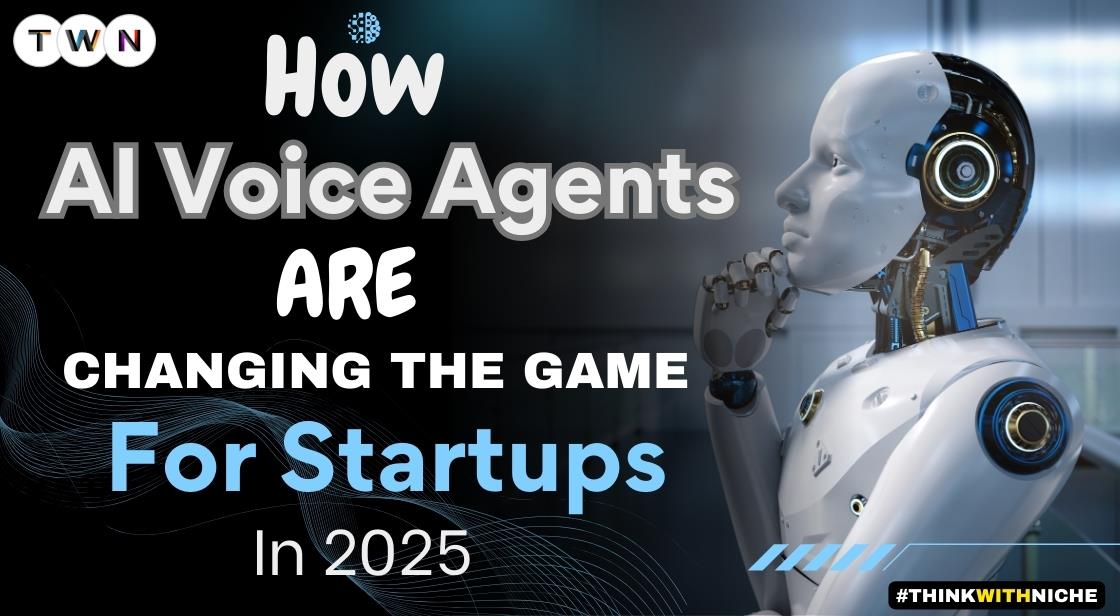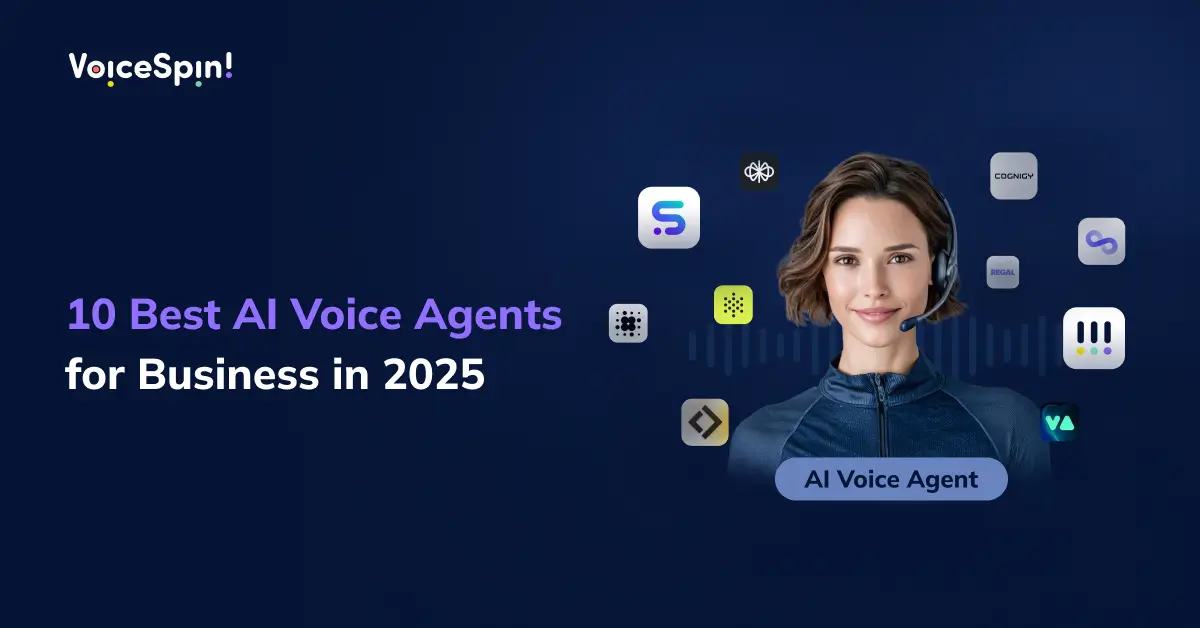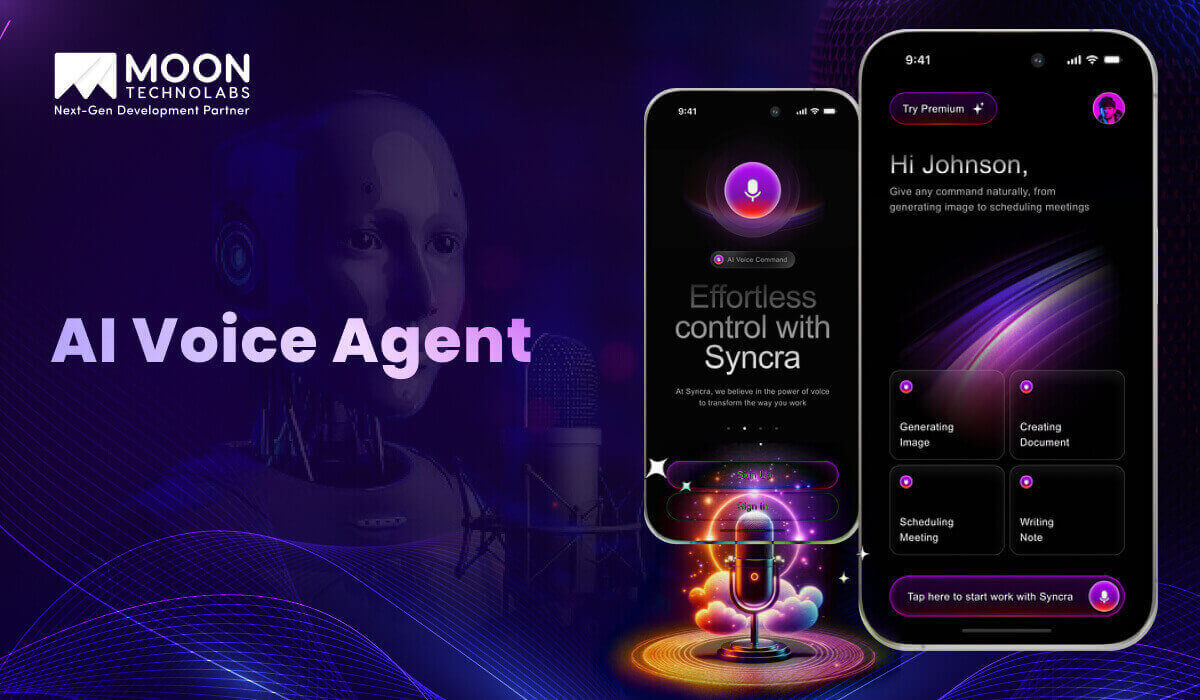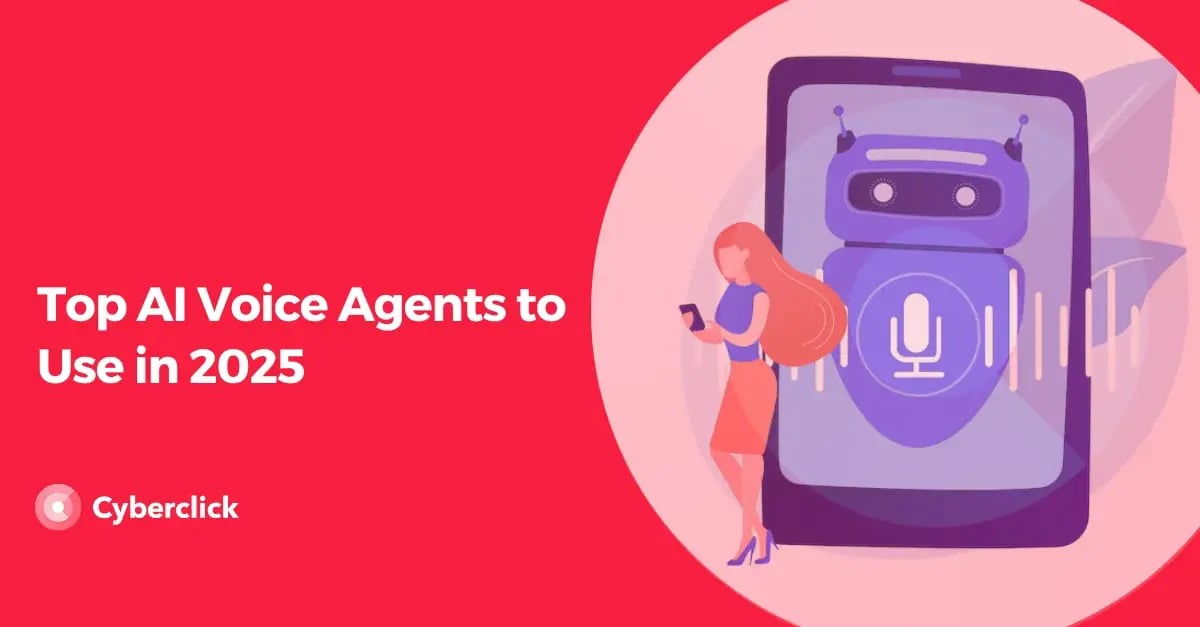“`html
Introduction: Navigating the Landscape of AI Voice Agents for Business in 2025
Estimated reading time: 12 minutes
Key Takeaways
- AI voice agents are set to transform business operations in 2025, enhancing efficiency and customer engagement.
- Understanding the **best AI voice agents for business 2025** is crucial for maximizing these benefits.
- Intelligent automation is increasingly in demand for customer service and core operations.
- This guide will help businesses select suitable AI voice agent solutions by comparing features and pricing.
Table of contents
- Introduction: Navigating the Landscape of AI Voice Agents for Business in 2025
- Understanding AI Voice Agents and Their Role in Customer Service Automation
- A Comparative Analysis of the Top AI Voice Agent Platforms for 2025
- Demystifying How to Build Voice AI Agents: A Practical Guide
- Essential Factors When You Compare AI Voice Agent Features and Pricing
- Strategic Selection: Choosing the Best AI Voice Agents for Your Business in 2025
- Conclusion: Embracing AI Voice Technology for a Future-Ready Business
As we look ahead to 2025, the business landscape is on the cusp of a significant transformation, largely driven by the burgeoning capabilities of AI voice agents. These intelligent systems are no longer futuristic concepts; they are becoming integral tools for enhancing operational efficiency, personalizing customer interactions, and ultimately, driving business growth. The demand for intelligent automation in customer service and across various operational facets is escalating, making it imperative for businesses to understand and leverage the power of voice AI. This post is designed to be your comprehensive guide, empowering you to navigate the complexities of selecting the most suitable AI voice agent solutions for your unique business needs in the coming year. We will delve deep into how to **compare AI voice agent features and pricing** to ensure you make an informed decision that aligns with your strategic objectives.

Understanding AI Voice Agents and Their Role in Customer Service Automation
At its core, an AI voice agent is a sophisticated software system designed to engage in spoken conversations with humans. These agents leverage advanced technologies such as Natural Language Understanding (NLU) and Natural Language Processing (NLP) to interpret user intent, context, and sentiment. Coupled with real-time speech synthesis, they can generate human-like responses, creating a seamless and interactive conversational experience. The role of AI voice agents in **AI voice agents for customer service automation** is multifaceted and profoundly impactful.
These intelligent assistants are adept at handling a wide array of customer interactions. They can efficiently manage routine customer inquiries, freeing up human agents to focus on more complex or sensitive issues. This includes automating repetitive tasks like appointment scheduling, order processing, or payment collections. Furthermore, AI voice agents can intelligently route incoming calls to the most appropriate department or agent, minimizing transfer times and improving first-contact resolution rates. They also play a crucial role in gathering valuable customer feedback and can escalate challenging situations to human support personnel when the AI reaches the limit of its programmed capabilities.
The benefits of integrating AI voice agents into customer service operations are substantial and directly translate to improved customer satisfaction and operational cost savings:
-
24/7 Support Availability: Unlike human agents, AI voice agents can provide continuous support, ensuring customers receive assistance at any time of the day or night. This round-the-clock service is a significant advantage in today’s global marketplace. (Source: telnyx.com, voicespin.com)
-
Minimized Customer Wait Times: By handling a large volume of interactions simultaneously, AI voice agents drastically reduce or even eliminate the frustrating wait times customers often experience with traditional call centers. (Source: telnyx.com, voicespin.com)
-
Efficiently Managing High Volumes: AI agents scale effortlessly to handle peak periods or unexpected surges in customer contact, ensuring consistent service quality regardless of demand. (Source: telnyx.com, voicespin.com)
-
Reduced Operational Costs: Automating routine inquiries and tasks leads to significant savings in staffing, training, and infrastructure costs associated with human call centers. (Source: telnyx.com, voicespin.com)
-
Consistent and Accurate Information Delivery: AI voice agents are programmed to provide standardized and accurate responses, eliminating the human variability that can sometimes lead to misinformation. (Source: telnyx.com, voicespin.com)

A Comparative Analysis of the Top AI Voice Agent Platforms for 2025
Choosing the right AI voice agent platform is a critical decision for any business aiming to leverage this technology effectively. The market in 2025 offers a diverse range of solutions, each with its unique strengths and ideal use cases. To make an informed choice, it’s essential to evaluate the **top AI voice agent platforms 2025** and understand how they cater to different business needs. We can broadly categorize these platforms based on their core focus and offerings:
-
Telecom-native platforms (e.g., Telnyx): These platforms are built with a deep understanding of telecommunications infrastructure. They offer unparalleled integration with global voice networks, providing features like full call control, programmable voice capabilities, robust APIs for seamless integration, and extensive global calling features. For businesses heavily reliant on voice communication, these platforms offer a solid foundation. (Source: telnyx.com)
-
Enterprise-focused platforms (e.g., PolyAI, Bland AI, OneAI): Designed for larger organizations with complex operational workflows, these platforms excel in managing intricate business processes. They often support a wide array of languages, offer seamless integrations with popular CRM and ticketing systems, and provide advanced analytics dashboards for deeper insights into customer interactions and agent performance. (Source: voicespin.com, oneai.com)
-
Developer-centric platforms (e.g., Bland AI): For businesses that require a high degree of customization and control over their AI voice solutions, developer-centric platforms are ideal. They often provide advanced tools for voice cloning, custom dialogue scripting, and flexible integration with a multitude of third-party applications, allowing for highly tailored and unique conversational experiences. (Source: voicespin.com, oneai.com)
-
Industry-agnostic platforms (e.g., Google Dialogflow, Amazon Lex): These versatile platforms offer reliable and adaptable conversational AI agents suitable for a broad range of businesses and industries. They provide comprehensive Natural Language Processing (NLP) toolkits and can be deployed across multiple communication channels, making them a flexible choice for those seeking robust yet adaptable AI solutions. (Source: deligence.com)

Each of these platform categories caters to different needs, from large-scale, complex enterprise deployments requiring deep integration to nimble, no-code solutions perfect for smaller businesses looking to quickly implement voice AI capabilities.
Demystifying How to Build Voice AI Agents: A Practical Guide
For businesses wondering **how to build voice AI agents**, the process, while technical, can be broken down into manageable steps. While custom development is an option for highly specific needs, leveraging existing platforms offers a more cost-effective and efficient route for most organizations in 2025. Here’s a practical, step-by-step approach:
-
Define Clear Goals and Use Cases: The foundational step involves identifying precise business challenges and customer interaction points. Are you looking to handle inbound customer queries more efficiently, automate outbound follow-up calls, or provide automated customer support for frequently asked questions? Clearly defining these objectives will guide your platform selection and implementation strategy.
-
Select the Appropriate Technology Stack or Platform: This is a pivotal decision. Building a voice AI agent from scratch requires significant internal technical expertise and resources. In contrast, leveraging configurable platforms is generally more cost-effective, faster to deploy, and offers greater reliability for most businesses. Carefully research and choose a platform that aligns with your technical capabilities and business goals. (Source: telnyx.com, voicespin.com, oneai.com)
-
Prepare Comprehensive Training Data: The performance of any AI agent hinges on the quality and quantity of its training data. This involves gathering relevant voice recordings, well-structured scripts, and logs of past customer interactions. This data is crucial for optimizing the AI’s language models, ensuring it can understand diverse speech patterns, accents, and conversational nuances with high accuracy.
-
Seamless Integration: For an AI voice agent to be truly effective, it must integrate smoothly with your existing business systems. This includes connecting with Customer Relationship Management (CRM) software, databases, order management systems, and other communication tools. Such integration ensures that the AI can access and update relevant information, enabling it to provide personalized and context-aware assistance.
-
Thorough Testing and Deployment: Before a full-scale rollout, rigorous testing is paramount. This involves evaluating the AI agent’s accuracy in understanding queries, its naturalness of conversation, user experience, and adherence to compliance and security protocols. Beta testing with a subset of users can provide valuable feedback for final adjustments.
-
Continuous Iteration and Improvement: AI is not a set-it-and-forget-it technology. Once deployed, it’s essential to continuously monitor the AI agent’s performance. Analyze call outcomes, identify areas where the AI struggled, and refine conversational flows. Regularly retraining the models with new data based on user feedback and evolving business needs will ensure the AI agent remains effective and up-to-date.

It’s worth reiterating that while custom development offers ultimate flexibility, the practicality and efficiency of using existing, robust platforms cannot be overstated for most businesses in 2025. (Source: telnyx.com, voicespin.com)
Essential Factors When You Compare AI Voice Agent Features and Pricing
Making an informed decision when you **compare AI voice agent features and pricing** requires a keen eye for detail and a clear understanding of what truly matters for your business operations. The array of features and pricing models can be extensive, so focusing on key differentiators is crucial for selecting a solution that delivers tangible value. Here are essential factors to evaluate:
-
Natural Language Understanding (NLU) and Natural Language Processing (NLP) Capabilities: The AI’s ability to comprehend diverse accents, linguistic nuances, colloquialisms, and the overall conversational context is fundamental. A robust NLU/NLP engine ensures that the agent can accurately interpret what users are saying, leading to more effective interactions.
-
Speech Recognition Accuracy and Language Support: High speech recognition accuracy is non-negotiable. For businesses with a global customer base, comprehensive multilingual support is equally vital, ensuring that the AI can communicate effectively with users from different linguistic backgrounds. (Source: voicespin.com)
-
Customization Options: The flexibility to customize the AI’s voice, persona, and conversational flows is important for brand consistency and user experience. The ability to script dialogues, define escalation paths, and integrate with existing legacy workflows ensures the AI agent complements rather than disrupts current operations.
-
Integration Capabilities: A seamless integration with your existing technology stack is critical for operational efficiency. This includes robust connections with CRM systems for customer data access, omni-channel communication platforms, ticketing systems for issue tracking, and analytics tools for performance monitoring. (Source: voicespin.com, oneai.com)
-
Insights and Analytics: The value derived from an AI voice agent extends beyond handling calls. Access to real-time reporting on call outcomes, agent performance metrics, customer sentiment analysis, and common query patterns provides actionable insights for business improvement and strategic decision-making.
-
Scalability and Reliability: As your business grows, your AI voice agent solution must be able to scale accordingly. Evaluate the platform’s ability to handle increasing call volumes without performance degradation, ensuring minimal latency and high availability to maintain consistent service quality. (Source: telnyx.com)
-
Compliance and Security: Depending on your industry, adherence to specific privacy and security standards (like HIPAA for healthcare or GDPR for data privacy) is crucial. Ensure the platform you choose has robust security measures and meets all relevant compliance requirements.

When it comes to pricing, common models include per-minute or per-call rates, subscription tiers based on usage volume or the number of active agents, and potential additional charges for advanced features like voice cloning, custom integrations, or in-depth analytics. Understanding these models and how they align with your projected usage is key to budgeting effectively. (Source: telnyx.com, voicespin.com, deligence.com)
Strategic Selection: Choosing the Best AI Voice Agents for Your Business in 2025
As we continue our exploration of the **best AI voice agents for business 2025**, the ultimate goal is to equip you with the strategic framework to make the most impactful selection for your organization. It’s not just about adopting new technology; it’s about making a choice that demonstrably enhances your business operations. Consider these crucial factors when making your final decision:
-
Alignment with Business Needs: This is the paramount consideration. Assess your business size, the typical volume and complexity of your customer interactions, and your organization’s existing technical sophistication. A solution that is overkill for a small business might be essential for a large enterprise, and vice versa. Ensure the chosen AI voice agent directly addresses your specific operational challenges and customer service goals.
-
Return on Investment (ROI): Evaluate the platform’s reliability, the comprehensiveness of its features, and its overall cost in relation to the projected business benefits. Consider how quickly you can expect to see improvements in efficiency, cost savings, and customer satisfaction. A clear ROI calculation will justify the investment and guide your budgetary decisions.
-
Technical Compatibility: Examine how easily the AI voice agent can integrate with your current technology stack. This includes assessing compatibility with your CRM, ERP systems, communication infrastructure, and any industry-specific software you rely on. Seamless technical integration is key to a smooth and effective implementation.
-
Future-Proofing: Look for solutions that offer capabilities supporting your business’s future growth and adaptability. This includes the potential for AI upgradability as the technology evolves, the ability to expand to new communication channels or languages, and a vendor that provides ongoing platform support and innovation. Choosing a forward-thinking partner ensures your investment remains relevant and valuable over time. (Source: voicespin.com, oneai.com, deligence.com)
-Mar-14-2025-05-55-40-8841-PM.png?)
Conclusion: Embracing AI Voice Technology for a Future-Ready Business
In summary, the strategic adoption of AI voice agents presents a transformative opportunity for businesses looking to enhance customer engagement, streamline operations, and build resilience in an increasingly competitive market. By understanding the core capabilities of these intelligent systems, comparing the diverse range of platforms available in 2025, and carefully considering essential features and pricing, businesses can make informed decisions that align with their unique needs and strategic objectives. The ability to provide 24/7 support, minimize customer wait times, and manage interactions efficiently are just some of the profound benefits that voice AI brings to the table.

The businesses that proactively explore and strategically implement AI voice technology will undoubtedly be best positioned to adapt and excel as voice AI continues its rapid evolution. This technology is not merely about automation; it’s about creating more meaningful and efficient connections with customers, setting new benchmarks for service excellence, and driving overall business success. To further understand the broader impact of artificial intelligence on the professional landscape, you might find it beneficial to explore the impact of AI on UK jobs and the top AI trends to watch 2025.

Embracing these innovative solutions is no longer an option but a necessity for staying competitive and relevant in the years ahead.
“`






